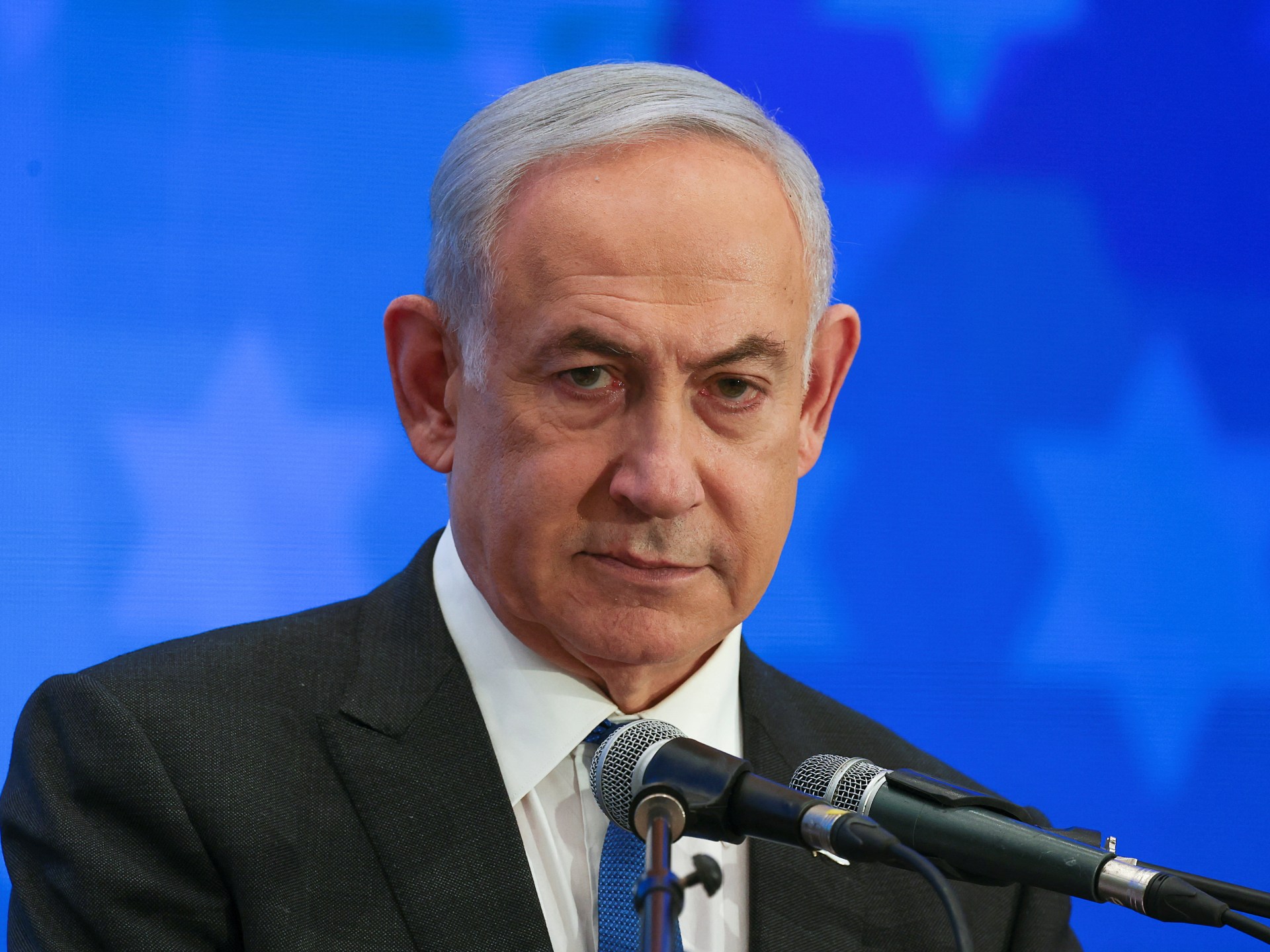
The Palestinian Authority has sharply criticised a “day after” plan for Gaza presented by Israeli Prime Minister Benjamin Netanyahu, calling it “destined to fail”.
“If the world wants security and stability in the region, it must end the Israeli occupation of Palestinian territories and recognise the independent Palestinian state with Jerusalem as its capital,” Nabil Abu Rudeineh, the spokesperson for Palestinian President Mahmoud Abbas, was quoted as saying on Friday by the Palestinian state news agency Wafa.
Netanyahu’s plan is his first official proposal for what comes after the war in Gaza – in which Israel has killed more than 29,000 Palestinians.
According to the document, presented to members of Israel’s security cabinet on Thursday, Israel would maintain security and military control over all land west of Jordan, including the occupied West Bank and Gaza – territories where the Palestinians want to create their independent state.
In the long-term goals listed, Netanayhu also rejected the “unilateral recognition” of a Palestinian state. He said a settlement with the Palestinians will only be achieved through direct negotiations between the two sides – but it did not name who the Palestinian party would be.
In response, Abu Rudeineh rejected any effort to separate governance in Gaza from the West Bank.
“Gaza will only be part of the independent Palestinian state … Any plans to the contrary are destined to fail,” he said. “Israel will not succeed in attempts to alter the geographic and demographic reality in the Gaza Strip.”
“Netanyahu’s proposed plans aim to perpetuate Israel’s occupation of Palestinian territories and prevent the establishment of a Palestinian state,” Abu Rudeineh added.
Gaza to be run by ‘local officials’
The war in Gaza has revived international calls – including from Israel’s main backer, the United States – for the so-called two-state solution as the ultimate goal for resolving the decades-long Israel-Palestinian conflict. However, many senior Israeli politicians oppose the creation of a Palestinian state.
While on Gaza, Netanyahu’s plan emphasised that the war would continue until Israel had achieved all of its announced goals: the dismantlement of military capabilities and infrastructure operated by Hamas and Islamic Jihad; the return of all captives taken on October 7; and the removal of all security threats originating from Gaza.
The enclave will then be run by “local officials” who are not tied to “countries or entities that support terrorism”.
Commenting on the plan, Al Jazeera’s senior political analyst Marwan Bishara said that the identity of these officials was unknown.
“We don’t know who they are, he [Netanyahu] doesn’t know either … I don’t think they exist. There were attempts in the 1970s and 1980s to create such entities among the Palestinians and it failed in no time,” he said.
It is also unclear whether representatives of the Palestinian Authority (PA) will be involved in controlling Gaza.
Reporting from occupied east Jerusalem, Al Jazeera’s Hamdah Salhut highlighted that, in his draft plan, Netanyahu did not mention the PA’s role.
“He [Netanyahu] didn’t say this officially in his plan but used broader terminology probably to reach a consensus among his right-wing government,” she said.
“Remember the Israeli prime minister is under immense pressure from the Americans who want to see a revitalised PA to take over once the war is over. But Netanyahu has been quiet defiant to come in and take over Gaza,” Salhut added.
The Israeli prime minister’s plan also outlined demilitarisation and deradicalisation as goals to be achieved in the medium term in Gaza. It does not elaborate on when that intermediary stage would begin or how long it would last, but says that the “the Israeli army will maintain indefinitely the freedom to intervene in Gaza to prevent the resurgence of terror activity”.
It also proposes that Israel have a presence on the Gaza-Egypt border in the south of the enclave and says that Israel should cooperate with Egypt and the US in that area to prevent smuggling attempts, including at the Rafah crossing.
Plans for UNRWA’s closure
Lastly, Netanyahu’s plan also says that the UN relief agency for Palestinian refugees, UNRWA, would be shut.
Israel has long tried to eliminate the UN agency, which enshrines the right of Palestinian refugees to return home. Israel has recently made claims that UNRWA has links to Hamas, a claim that the body has fiercely denied, and that US intelligence assessments have cast doubt on, according to reports.
Tamara Alrifai, UNRWA’s director of external relations and communications told Al Jazeera that attempts to get rid of UNRWA should be seen alongside efforts to remove the future prospect of a Palestinian state, highlighting Netanyahu’s display of a map of Israel that included the occupied West Bank, Gaza, and occupied East Jerusalem during an address at the UN General Assembly in September.
“A map which includes and encompasses all the Palestinian territories where UNRWA works. I don’t find this a coincidence,” she said.
According to Al Jazeera’s Bishara, this plan is not official and is one that Netanyahu is floating to the cabinet, in order to leak it to the media and to do a number of other things.
“Firstly there is that approach towards his own base. He’s telling his radicals in the government and public that he remains steadfast … Secondly, I think it is quite stupid to be honest, because we know the Israelis have tried this [plan to take control of Gaza in some form or the other] before and it never worked,” Bishara said.
“Lastly, it [the plan] is so sadist. We are in the midst of the fifth month of genocide against the Palestinian people. Still, the Israeli prime minister insists they will maintain control … that kind of sadism is unprecedented.”










